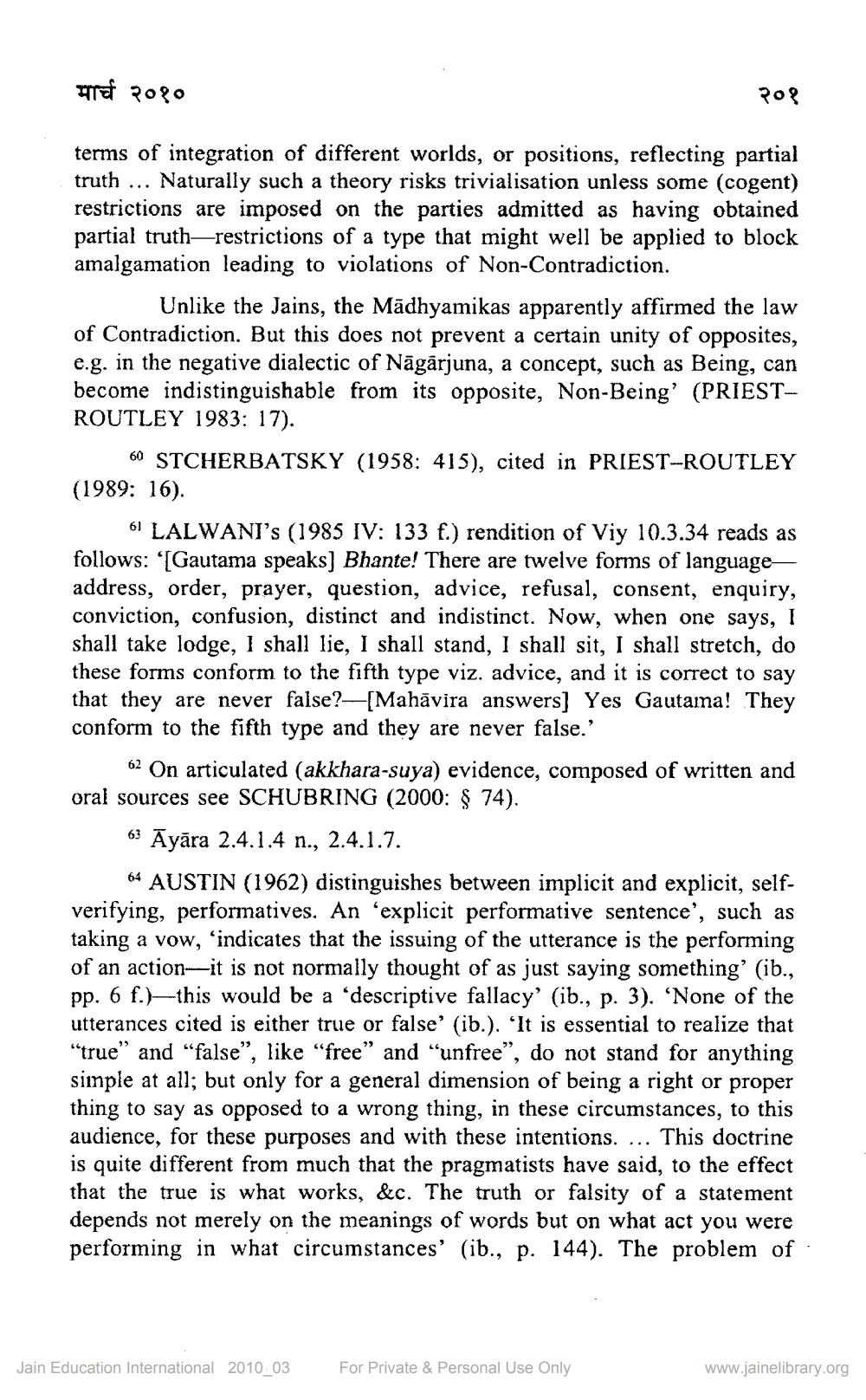________________
मार्च २०१०
२०१
terms of integration of different worlds, or positions, reflecting partial truth ... Naturally such a theory risks trivialisation unless some (cogent) restrictions are imposed on the parties admitted as having obtained partial truth—restrictions of a type that might well be applied to block amalgamation leading to violations of Non-Contradiction.
Unlike the Jains, the Mādhyamikas apparently affirmed the law of Contradiction. But this does not prevent a certai
opposites, e.g. in the negative dialectic of Nāgārjuna, a concept, such as Being, can become indistinguishable from its opposite, Non-Being' (PRIESTROUTLEY 1983: 17).
60 STCHERBATSKY (1958: 415), cited in PRIEST-ROUTLEY (1989: 16).
61 LALWANI's (1985 IV: 133 f.) rendition of Viy 10.3.34 reads as follows: '[Gautama speaks) Bhante! There are twelve forms of language address, order, prayer, question, advice, refusal, consent, enquiry, conviction, confusion, distinct and indistinct. Now, when one says, I shall take lodge, I shall lie, I shall stand, I shall sit, I shall stretch, do these forms conform to the fifth type viz. advice, and it is correct to say that they are never false?—[Mahāvira answers] Yes Gautama! They conform to the fifth type and they are never false.'
62 On articulated (akkhara-suya) evidence, composed of written and oral sources see SCHUBRING (2000: $ 74).
63 Āyāra 2.4.1.4 n., 2.4.1.7.
64 AUSTIN (1962) distinguishes between implicit and explicit, selfverifying, performatives. An 'explicit performative sentence', such as taking a vow, 'indicates that the issuing of the utterance is the performing of an action—it is not normally thought of as just saying something' (ib., pp. 6 f.)—this would be a 'descriptive fallacy' (ib., p. 3). 'None of the utterances cited is either true or false' (ib.). 'It is essential to realize that "true" and "false", like "free" and "unfree", do not stand for anything simple at all; but only for a general dimension of being a right or proper thing to say as opposed to a wrong thing, in these circumstances, to this audience, for these purposes and with these intentions. ... This doctrine is quite different from much that the pragmatists have said, to the effect that the true is what works, &c. The truth or falsity of a statement depends not merely on the meanings of words but on what act you were performing in what circumstances' (ib., p. 144). The problem of
Jain Education International 2010_03
For Private & Personal Use Only
www.jainelibrary.org




